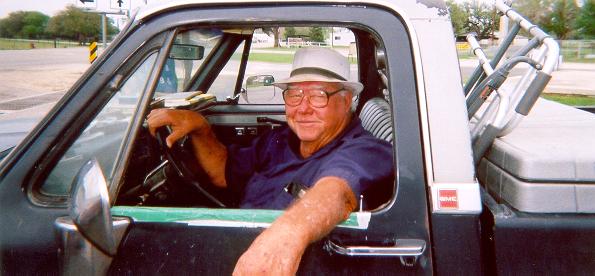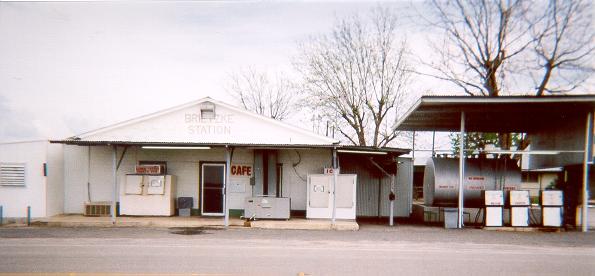John L. Bohannon



The Depression started in Texas about a year and a half after it hit the East Coast. It hit there in 1929 and it was about 1931 before it came to Texas bad. At that time I was going on six years old, and I remember very well that things were hard to come by and there was no money.
Did you go to school when the Depression started?
I stated school in 1932 in the little town of New Berlin. During those days it was really, really hard. I was born and raised on a farm and my father had chickens, and we tried to sell cattle, just did everything we could to make a nickel. Things were so difficult, that we would take a case of eggs to the grocery store on Saturday to buy some groceries, and the grocer didn't have any money to buy the eggs, but he would trade us in coffee, salt, pepper, stuff that we had to have. We made our own cornmeal with a hammermill. Five neighbors would kill a calf every other week and divide it up. There was no refrigeration or ice, so each neighbor would kill a calf and divide it up amongst the other neighbors to have meat. When one neighbor got his chore done then the next four had to do that, and then the first would go again. Gasoline was eight cents a gallon for regular gas and nine cents for high octane gas.
What was home life like?
We were happy at home. We lived off chickens, rabbits, and etc. At that time there were no game laws, you killed what you needed. I would help my mother clean them and that's what we lived on for several years. Everybody pitched in together to survive. We never had to go to the food lines, they were mainly in the cities. People had nothing and the government gave them food until things got better. In 1932, Franklin Roosevelt was elected president and as time went gradually things got better. It was still terrible from 1930-1936. In 1936 World War II started and the nation was preparing for war and people went to work in defense. Things started to come back.
What was school like?
We were in a two room school house. When I went to school there were 15 or 20 in the small room and about the same in the big room. I attended high school in La Vernia from 1939 to 1941. At that time to graduate you only had to have three years of high school, but you had to pass six credits per year to pass.
Were there any dropouts at your school?
Nobody had money, some did drop out, but very few. We went barefooted except in the wintertime. Back then you didn't steal and you didn't lie or anything like the world is today. If you did you were in trouble, not only with the courts, but with your family.
In the early 30's we didn't have television, only radios called crystal sets (about half-way down the page). They had earphones and only one person could listen and tell the rest of the family. No jukeboxes, or radios played music. You only heard that when you went to a country dance on Saturday night. Nothing like today.
Did your life change after the Depression was over?
My life didn't change a whole lot. I went in the service after I got out of high school in May. I had four and a half years in the service. My life still hasn't changed. I still believe like I did when I was growing up, and the way I was raised.
What were your parents like?
They were good parents. They taught us to live right and helped us the best way they could.
Did your way of speding money change, after the Depression was over?
When you have more money to spend, you live a little bit higher. We did the best we knew how. My father taught me to be a conservative person and to save at least 10 percent of what I make. I have followed it all my life.
This website provided me with a map of the area around New Berlin. It tells you where it is located with a red star.
http://www.tsha.utexas.edu/handbook/online
This website has information about the Great Depression in Texas History. It serves as a background for more information if you would like to find out more facts.
This website gives background information on Franklin Delano Roosevelt. It talks about the New Deal and the Depression.
freepages.history.rootsweb.com
This website is an account of another man during the 1930's. He talks about his childhood, and explains crystal sets in more detail.